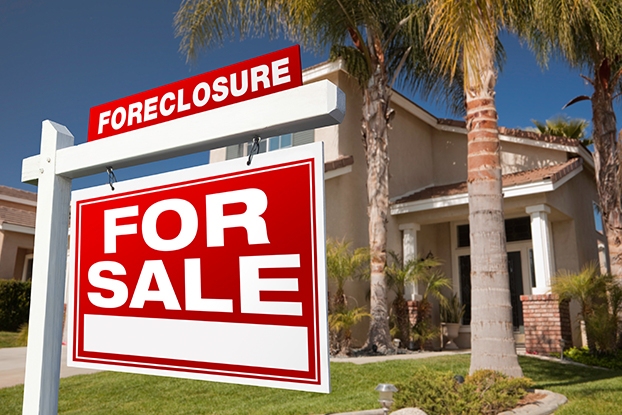How Long Does Foreclosure Take In Nevada?
What To Expect
If you have gotten behind in your mortgage payments, your lender may threaten to foreclose on your home. This is a real threat, however, and something you should avoid at all costs. Even if it becomes obvious that you cannot make the payments, there is a better way to handle the problem. But if you get behind 3 months or more, it’s time to start planning. This is because once you fall behind 120 days or 4 months, they can legally start proceedings. Every state is different, and although it is a long process, once it starts, it is difficult to stop. So how long does foreclosure take? The short answer is, from absolute start to finish, a foreclosure usually lasts about 2 years. For this article, we will discuss the process for Nevada.
How It Works
Once you’ve gone 120 days without making a payment, the lender will send you a pre-foreclosure notice. This notice must include the balance of past due payments, the total amount due to cure the default, the risk of impending foreclosure, and the homeowner’s options to prevent a foreclosure. If you haven’t paid much attention until now, this is a good time to start. Because next comes the Notice of Default and Election to Sell, which is recorded with the County Recorder and is what signifies the official beginning of a foreclosure. This notice must be posted on the property, and provide the homeowner with three months to resolve the remaining debt in full. At this time, Nevada state law requires that the homeowner facing foreclosure be given the opportunity to participate in foreclosure mediation, at this time. Not every state does this, so take advantage of it if you are offered this chance. If the three months or 90 days goes by and no agreement has been reached and the balance is still unpaid, the lender’s third-party trustee will move along with the foreclosure process, and prepare the sale of the property. At 60 days prior to the sale date, you will receive what’s called the Danger Notice. The homeowner is presented with a notice that they are in danger of losing their home due to foreclosure. The original promissory note, signed at the time of the home purchase, is attached for clarity. At 20 days prior to the sale, the homeowner and all tenants of the foreclosed property are notified of the projected date of sale by certified mail or personal service. This is the Notice of Sale/Notice of Tenants. Another Notice of Sale must be posted on the property 15 days before the sale. Under Nevada State Law, the homeowner has until five days prior to the sale to pay all fees and remaining payments in order to reinstate their ownership. After this date, the home is sold and if necessary, the eviction process begins. This is how a foreclosure works, in Nevada. Are there things you can do to stop it? Absolutely. Keep reading.
What You Can Do To Stop It
Generally, the borrower (you) resides in the home, and you will want to know what you can do to stop it. Aside from paying the loan off, there are a few things you can do to stop this process. Number one, you can file for bankruptcy. When a bankruptcy is filed, an automatic stay goes into effect, stopping all collection activity including foreclosure sales. You can file a lawsuit against the foreclosing party (lender) to possibly stop the foreclosure entirely, or at least delay it. Or you can apply for a loan modification. This is where you can make changes to your mortgage loan so you can better afford the payments, by refinancing it. Many times, this is all it takes for people to get back on track. It’s called loss mitigation, and if you submit proper paperwork to your borrower during a foreclosure it will stop the proceedings. Foreclosure can be an intimidating and scary experience. The stress of potentially losing your home can drive you to make mistakes, either by doing the wrong thing or failing to act at all. Doing nothing will also do – nothing, to help your situation.
Another Option
When this kind of life situation occurs, it is traumatic for anyone involved. Struggling in a way that threatens your home existence is frightening to the core. If you have realized that you can’t make the payments, and you don’t have the option to refinance, you need another solution. Sellyourhousefastlv understands these types of problems, and we can help. From the first missed payment to 5 days before the sale, you have the option of selling your house yourself, and taking control of the situation. If you have the insight to know it’s coming, contact us before the foreclosure starts. It is during this time that you will have the most control and freedom with your sale. But even after the process starts, you can call us and we will be glad to help you. We will make you the best fair price offer possible, and you never have any obligation to accept it. Pay the lender a part or all of what’s due and save your credit from instant ruin. A foreclosure is a lengthy, draining process for both parties, and pretty much a no-win situation. At the end of it all, you will still owe the mortgage company the balance plus have a foreclosure on your credit history, and they will still have lost money as well as their investment. Working with a cash home buyer is a great option to a short sale. You can salvage your credit and plus pay off a big part of your debt to them, perhaps even pay them off and still have money left over in your pocket. Avoid the lengthy and draining process of foreclosure, the negative mark on your credit and the stigma that goes along with it. Contact us at Sellyourhousefastlv today, and let us help you through it.



